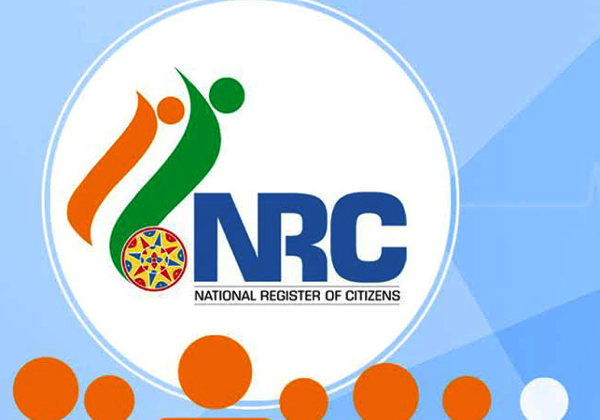The National Register of Citizens (NRC) can be explained as the register that has recorded the names of all the genuine citizens of India. Prepared for the first time in 1951, the NRC list has been updated for the state of Assam since the state experiences a longstanding problems due to foreigners. In case of Assam, the government now wants to filter out the illegal immigrants and prevent such inflow in future. Started in 2003, the updating process of NRC happens under the strict supervision of the Supreme Court of India. The complete draft of the NRC was released on July 30, 2018.
Who have the eligibility to be included in NRC
Persons whose names are found on the NRC list of 1951 and the persons whose names figure in any of the electoral rolls prepared up to March 24, 1971 are eligible to be included in the NRC list. The list will accept the descendants of all these persons by default. The immigrants who registered their names with the Foreigners Registration Regional Officer (FRRO) having entered the country January 1, 1966 and March 25, 1971 can find a place in this list if the Foreigner’s tribunal has declared them as Indian citizens.
NRC bill latest amendment
In a recent move, the Union Cabinet cleared the Citizenship (Amendment) bill that will provide citizenship to non-Muslim refugees who come from Pakistan, Afghanistan and Bangladesh on grounds of religious prosecution. This bill which seeks to amend the Citizenship Act 1955 is to be introduced in the Parliament shortly. The bill intends to provide Indian Nationality to six communities including Hindus, Christians, Parsis, Sikhs, Jains and Buddhists coming from the abovementioned three countries.
The government’s stand on the bill
The government feels that the bill will benefit a huge mass of Indians who could not find a palce in the NRC. The passing of CAB will avoid the necessity for many genuine Indian citizens to appear before the foreigner’s tribunal to prove their citizenship. Commenting on the necessity for the bill, Rajnath Singh, Defence Minister remarked, “Minorities in the neighboring theocratic countries have be have been subjected to continuous persecutions, which forced them to seek asylum in India. Giving citizenship to six minorities will be yet another push from the Modi government to the spirit of ‘Sarva Dharma Sambhav’ “.
Challenges in front of the Bill
The CAB has triggered widespread resentment in the Northeast regions of the nation due to fears that granting citizenship to foreign refugees through this bill can eventually undermine the interests of the ethnic communities living in these regions. The government is reacting to this concern by contemplating on moves such as the citizenship provision not leading to residency status in case of smaller northeast states of the country.
Opposition parties and minorities have attacked the bill stating that it takes an odd stand with the constitution since the constitution of India does not differentiate between the citizens of India on the basis of their faith.
The background of the bill (amendment)
While it will be clear shortly if the bill can pass without any problems, the introduction of the bill follows BJP’s assurance during 2019 Lok sabha elections which said, “We are committed to the enactment of the Citizenship Amendment Bill for the protection of individuals of religious minority communities from neighboring countries escaping persecution.”
Source: BI
Image Courtesy: The Sentinel
You may also like
-
Trade Connect E-platform For Exports Is Single Window, Fast, Accessible And Transformational: Shri Piyush Goyal
-
Five Successful Years of Pradhan Mantri Kisan Maandhan Yojana (PM-KMY)
-
Global Study by Leading Experts : Swachh Bharat Mission Drives Significant Reductions in Infant Mortality Rates in India
-
India Graphene Engineering and Innovation Centre (IGEIC) Under the Vision of Viksit Bharat@2047 Launched
-
Government Launches Vishvasya-Blockchain Technology Stack
